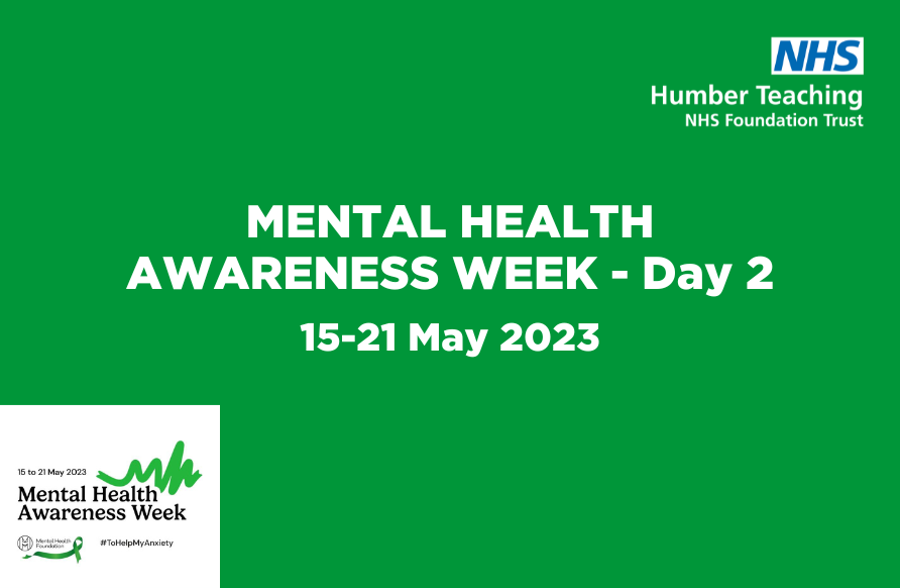Mental Health Awareness Week 2023 - Day 2 - (GAD) General Anxiety Disorder
Published: 01 January 0001

General Anxiety Disorder (GAD)
GAD is a common mental health condition and one of a range of anxiety disorders. It can exist in isolation but commonly occurs with other anxiety and depressive disorders. Around two-thirds of people diagnosed with GAD are female and is most common in people aged between 35 and 55 years1.
People with GAD usually report symptoms such as:
- Excessive worry occurring most days
- Difficulty controlling worrying thoughts
- Worry and anxiety about several different situations
- Feeling restless and on edge
- Fatigue
- Irritability
- Poor concentration
- Muscle tension
- Sleep disturbance
- Significant distress and impairment in social and occupational functioning
Things you can try
Self-help can help reduce symptoms; the following tips may help:
- Have realistic expectations, no-one is ever worry or anxiety free
- Understand your own particular patterns of worry by keeping a diary
- Set aside a short period of ‘worry time’ each day
- Use a ‘worry tree’ to help identify if a worry is something you can problem solve or if it is a about a hypothetical situation that is out of your control
- For worries you can do something about set yourself a specific plan of action
- Practice focusing on the present
- Visit Every Mind Matters - NHS (www.nhs.uk)
Treatment
Cognitive behavioural therapy (CBT) based guided self-help for mild to moderate symptoms and CBT for moderate to severe symptoms are recommended for GAD1. These are a short-term talking therapy which looks at the interactions between our thoughts, feeling and behaviours. Guided self-help is typically offered over 6 sessions, each lasting around 30 minutes; the appointments are usually once every other week. You will be taught different tips, tools, and techniques to help with your symptoms. CBT is usually offered weekly with sessions lasting around 50 minutes and looks at ways to develop skills to build greater flexibility in our thinking to enable us to start to change what we do and to manage our emotions in a positive way.
How to access Guided Self-Help and CBT
You can refer to East Riding Emotional Wellbeing Service (changing to NHS East Riding Talking Therapies) via the following options:
- Online: by visiting https://iaptportal.co.uk/erew.html
- Phone: Self-refer by calling 01482 335451 Our team is available from 8am – 6pm, Monday to Friday.
- Text:Text talk to 60163, this will send you a link to the website.
- Email: HNF-TR.SelfReferral@nhs.net
- GP referral:You can speak to your GP who can make a referral into the service.
1National Institute for Health and Care Excellence (2023) Generalised anxiety disorder [guidance]. https://www.nice.org.uk/guidance/cg113
-
Summary:
Click the banner to read more about General Anxiety Disorder on Day 2 of Mental Health Awareness Week 2023 (15-21 May)




